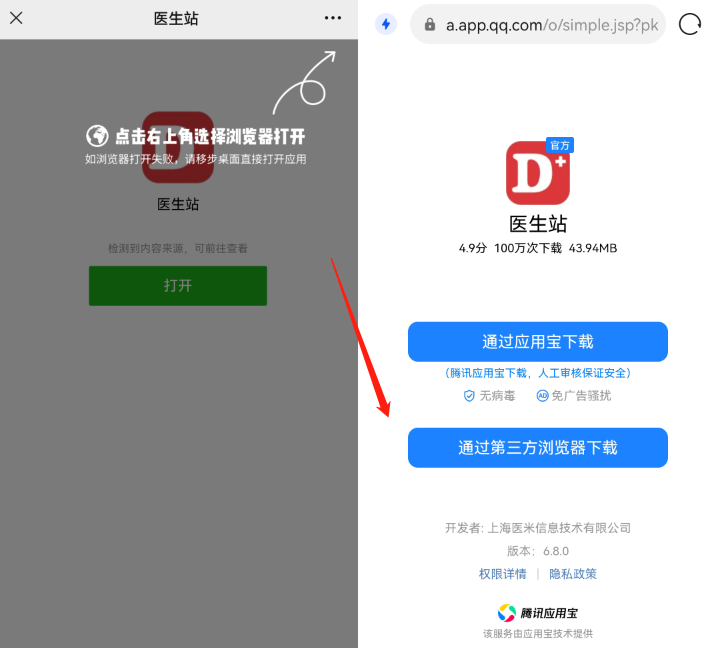Nejm: CTDNA or those who can screen phase II colon cancer chemotherapy beneficiaries
Author:Cancer Channel of the Medical Time:2022.06.25
*For medical professionals for reading reference

CTDNA results may be the basis for exemptional chemotherapy
Phase I colon cancer usually only needs surgery. After the operation of stage III colon cancer surgery, chemotherapy is required to reduce the chance of cancer recurrence. Whether chemotherapy is required after the period of colon cancer in phase II has always been controversial. JCO has published real -world studies that chemotherapy does not affect its final survival status among patients with phase II periodic cancer.
However, clinicians are not easy to choose in the recurrence risk and chemotherapy benefits. Can patients with phase II colon cancer exempt chemotherapy?
Nejm recently published a research on Circulting Tumor DNA Analysis Guiding Adjuvant Therapy in Stage II Colon Cancer. The "Medical Tumor Channel" invited Professor Wang Qingcheng from Peking University Cancer Hospital to interpret the results of the research and its clinical significance.

CTDNA guidance chemotherapy and standard clinical assessment
The study incorporated 455 patients after stage II colon cancer, and randomly divided into the CTDNA group and the standard clinical path evaluation group according to 2: 1. Patients in the CTDNA group performed a CTDNA assessment at 4-7 weeks after surgery. CTDNA positive patients performed chemotherapy for postoperative octoblatin or fluoropicidine, while CTDNA negative people did not perform chemotherapy. The main efficacy ending is 2 years without recurrence (RFS). The secondary end point is the use of auxiliary chemotherapy.
Compared with the standard assessment group, the ratio of the CTDNA group has a lower ratio of chemotherapy (28%vs 15%; RR 1.82, 95%CI 1.25-2.65), but the 2-year RFS rate of the CTDNA group is not lower than the standard evaluation group (93.5%VS VS VS VS VS VS vs 92.4%). Among the patients who are positive and accepted by chemotherapy, the 3 -year RFS rate is 86.4%; of patients with negative CTDNA and unpaid chemotherapy, the 3 -year RFS rate is 92.5%.
The results of this study show that CTDNA -positive phase II colon cancer patients can benefit chemotherapy, and the risk of recurrence of chemotherapy exceeds 80%. On the other hand, patients with a lower -stage II colorectal cancer with a lower risk of recurrence, CTDNA -negative patients, are also low in recurrence of chemotherapy.
Whether chemotherapy is chemotherapy in stage II,
Still more accurate judgment basis
Professor Wang Qingcheng said: "The current postoperative treatment plan for stage II colon cancer is determined by whether the patient has a clinical high-risk factors. The previous research results prompts that the people who can benefit from chemotherapy are 4%-5%."
During the treatment of chemotherapy, it will bring adverse reactions to patients and affect the quality of life of patients. "For example, Osarie Platinum, in clinical application, patients' numbness and adverse reactions are obvious." Professor Wang shared.
However, for high -risk groups of colon cancer recurrence, the benefits of chemotherapy are significantly higher than the negative impacts brought by it. Therefore, how to screen patients with phase II colon cancer who can benefit from chemotherapy more accurately is a need for clinical needs to meet.
"The biggest highlight of this study is to detect CTDNA more refined high -risk groups. Patients who cannot benefit from chemotherapy can choose a more suitable treatment plan. This is of great clinical significance. Cancer patients have accurate diagnosis and treatment and postoperative treatment decisions. "Professor Wang analyzed.
Whether the intestinal cancer is chemotherapy in stage II still needs to be more accurate to judge the basis
CTDNA is applied to the treatment scheme of stage II colon cancer,
How many ways do you have to go?
The results of this study show that CTDNA can guide the formulation of postoperative chemotherapy schemes in stage II colon cancer.
In advanced colorectal cancer, liquid biopsy has long been applied. Professor Wang introduced: "For advanced colon cancer, the clinical liquid biopsy will detect targeting targeting or special gene types, such as HER2." However, there are still some problems in the clinical plan for liquid biopsy to guide the clinical plan.
Professor Wang Qingcheng said: "Due to the different detection techniques and testing platforms of different companies, there are differences in their sensitivity and specificity. The afterbirth liquid biopsy is facing standardized problems. And the reagent platform used in this study in NEJM is not the platform for reagent platforms. Most manufacturers in my country. This study concludes that it needs to be used in domestic clinical clinical, and more domestic data support is needed. "
Professor Wang is very confident in the application of liquid biopsy in clinical application. "Although the liquid biopsy is currently mainly scientific research, it also has the advantages that the organizational biopsy does not have. In clinical practice, the use of liquid biopsy for evaluation is a trend. As my country's large tumor center research data mature, we ourselves ourselves The detection product and detection platform can be applied to the clinic and benefit more patients. "
Expert Introduction

Professor Wang Qingcheng
Chief Physician and Associate Professor of the Department of Gastroenterology, Peking University
CSCO Youth Expert Committee Standing Committee Member
Member of the Internal Science Group/Genetics Group of the Chinese Anti -Cancer Association
Standing Committee of the Beijing Cancer Prevention and Treatment Society of Circular Cancer Cancer Prevention and Control
"Annals of onCology" Chinese version editor board board
The cutting -edge information you want
Please pay attention to the doctor station 注
1. Scan code code code code code. Below QR code

2. Click to download the app


3. Open the doctor station app and click on the upper right corner

4. Find the tumor in the channel
And follow
Download the doctor's station app and subscribe anytime, anywhere ~

The first release of this article: the medical world tumor channel
Author: oolong tea
Review of this article: Wang Dingcheng, Peking University Cancer Hospital
Editor in charge: Sweet
- END -
Popular science knowledge | Danger!Summer summer heat, this must be studied in this required drowning course!

Since summerWild Swimming caused death in many placesAccording to media reportsRec...
The person in charge of the enterprise involved in Hangzhou Linping fire was controlled by the polic
The Journalism Office of the Linping District Government of Hangzhou City, Zhejiang Province issued a notice on the 10th that the fire broke out on the morning of the 9th, and the on -site search and